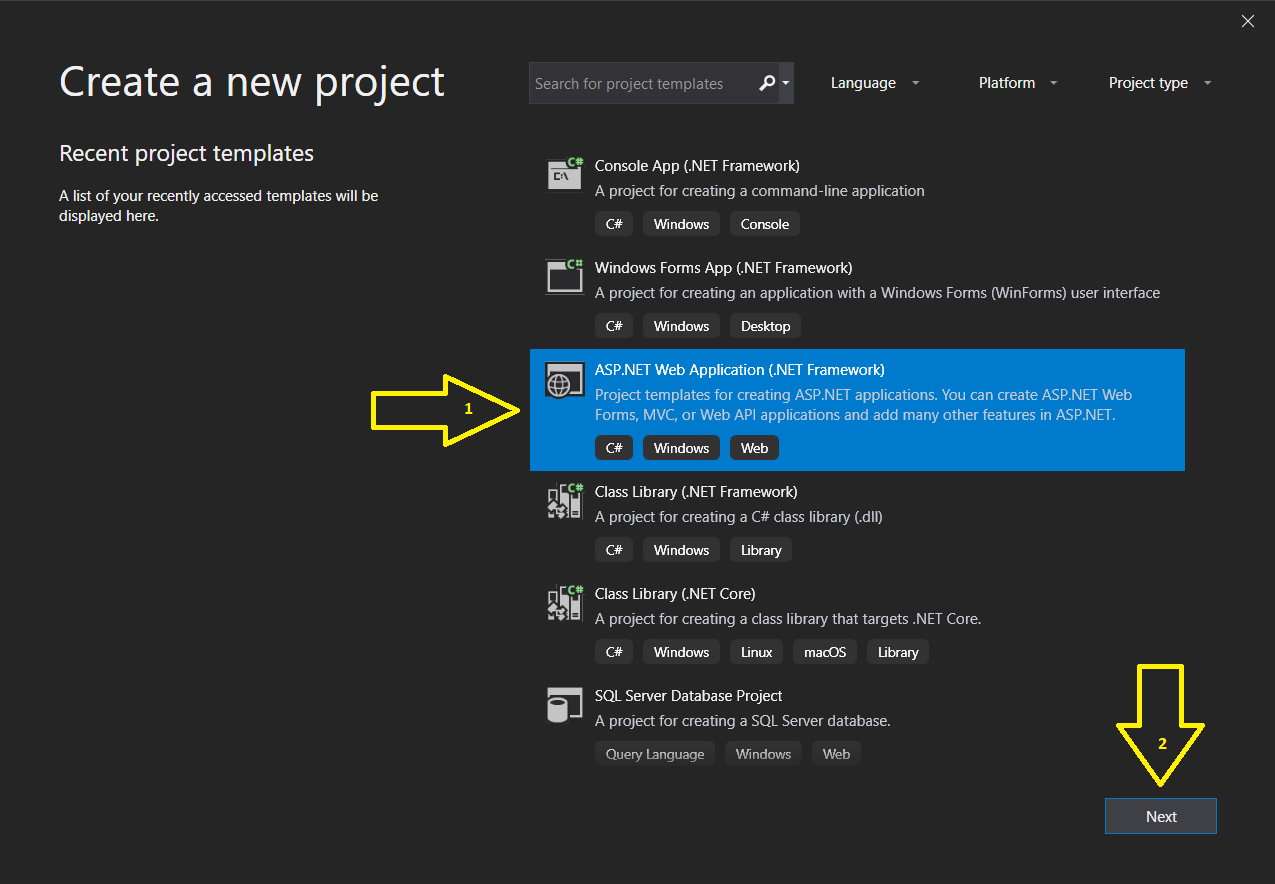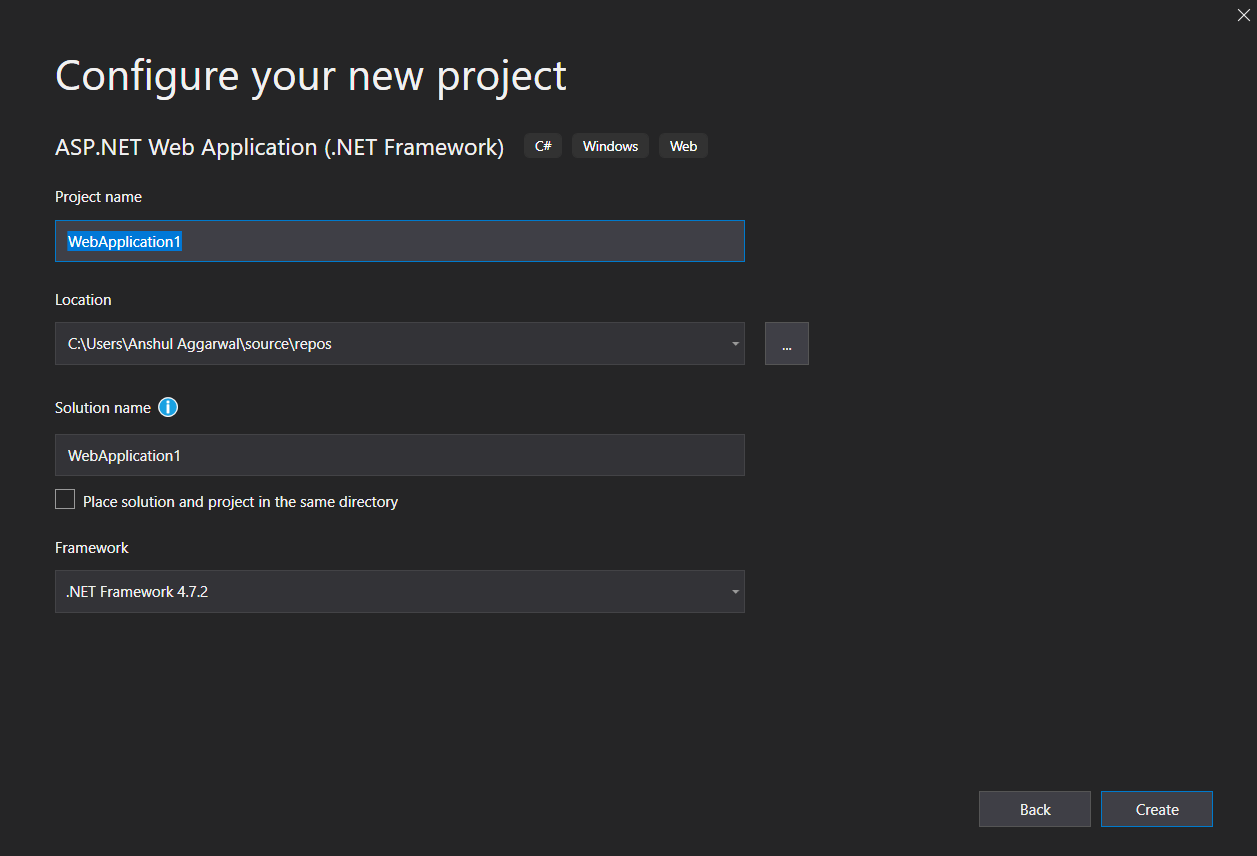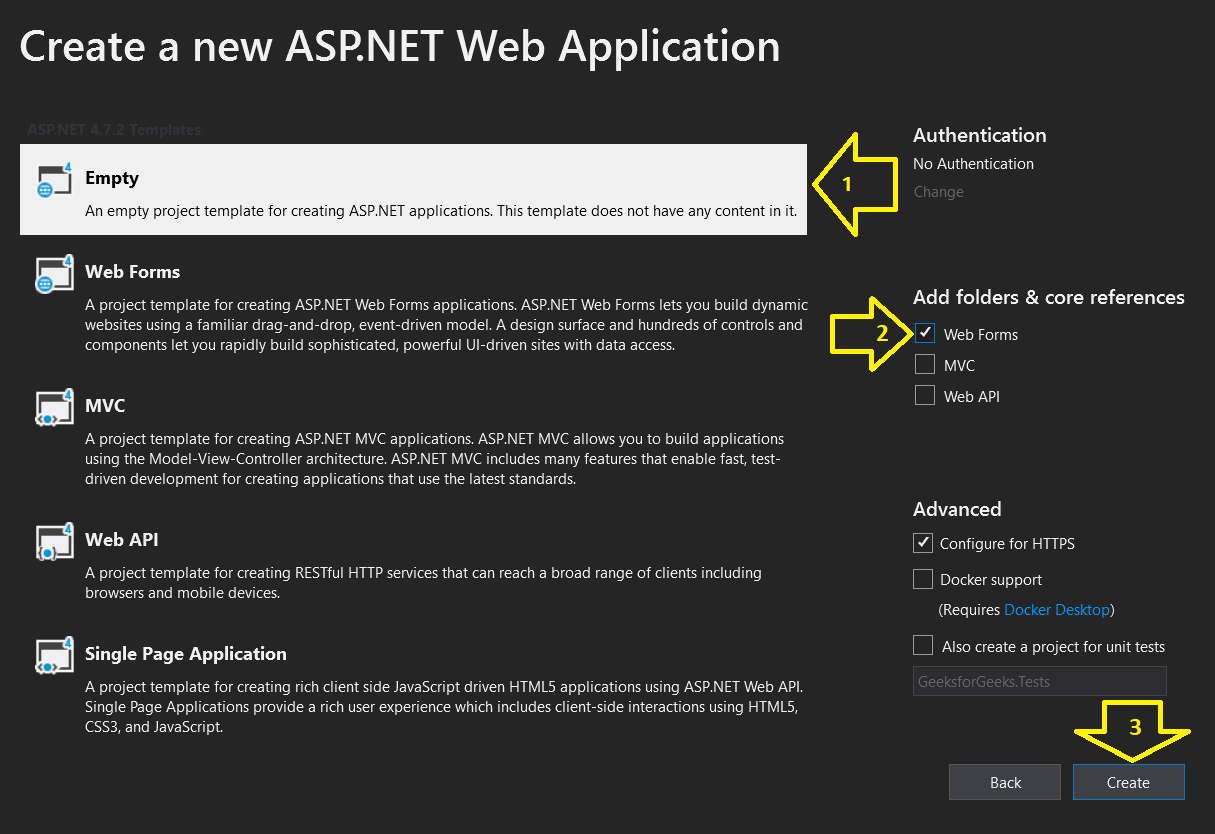Getting Started with ASP.NET: Programming Languages, Frameworks
ASP.NET is often labeled as an “old-school” Microsoft framework, yet it continues to power many modern, high-traffic web applications. Its transition from early Windows-focused development to cross-platform support has kept it relevant for current web development needs.
If you’re starting out in web development or considering backend technologies that offer stability and real-world demand, ASP.NET deserves a closer look.
This guide walks through what ASP.NET is, how it has evolved, the tools you’ll use to build applications, and whether it makes sense as a long-term career choice.
What is ASP.NET?
If you’re evaluating backend frameworks, understanding where ASP.NET fits can help clarify your options. ASP.NET is a Microsoft-developed framework used for building websites, web applications, APIs, and business platforms, especially when teams need clarity around how REST APIs differ from traditional web services in real-world application architecture.
The name comes from Active Server Pages (ASP), an earlier Microsoft technology for server-side scripting. Over time, ASP evolved into ASP.NET as part of the broader .NET ecosystem, giving developers structured libraries, runtime support, and tools for building maintainable web applications.
Many companies use ASP.NET for internal systems, cloud services, and enterprise software because it integrates closely with Microsoft technologies and established development workflows. For developers newer to the platform, understanding the .NET framework and its programming languages helps put ASP.NET into a broader technical context.
What you should know before getting started with ASP.NET
Before starting with ASP.NET, having a basic understanding of programming concepts helps. Familiarity with variables, control flow, and general coding logic is usually enough to begin.
It’s also useful to install Visual Studio, Microsoft’s primary development environment for .NET projects. It provides tools for writing code, debugging applications, testing features, and preparing deployments, which simplifies the development process.

Why developers still choose ASP.NET
When choosing a backend framework, it helps to look beyond popularity and focus on long-term usefulness, industry adoption, and practical development experience. ASP.NET continues to be relevant in professional environments, especially for enterprise applications, APIs, and cloud-based systems.
For developers exploring backend technologies or planning a career in application development, understanding where ASP.NET fits can help clarify whether it aligns with your goals.
- Learning ASP.NET can open doors to creating powerful websites and web applications.
- It's backed by Microsoft, which means it has solid support and a lot of resources available.
- Using ASP.NET allows you to tap into a vast community and use languages like C# or VB.NET to build your projects.
- Plus, it's versatile and used to be more tied to Windows, but now it works on different systems like macOS and Linux. With ASP.NET, you can craft modern, high-performance web solutions that cater to a wide range of users and needs.
This becomes clearer when evaluating how ASP.NET compares with other commonly used backend frameworks across real-world development scenarios.
Overall, ASP.NET remains a solid option for developers interested in backend development, enterprise software, or cloud services. Understanding its ecosystem and practical use cases can help you decide whether it fits your technical direction or career plans.
Who Should Learn ASP.NET?
Not every framework fits every developer, and that’s completely fine. ASP.NET is best suited for people who value structure, clarity, and long-term relevance over rapidly changing trends.
If you’re evaluating whether ASP.NET aligns with your goals, this section should help you decide.
Learners building a strong backend foundation
ASP.NET works well for students and early-career developers who want to understand backend development in a structured way.
Its clear separation of concerns and mature development patterns make it easier to learn how real-world applications are built and maintained.
Rather than hiding complexity, ASP.NET helps you understand how requests, data, and business logic work together, skills that remain useful across different backend technologies. This foundation also helps developers adapt when switching stacks, particularly when making transitions such as moving from Java-based development into C# and the .NET ecosystem.
Developers targeting enterprise and product roles
ASP.NET is widely used in enterprise environments where stability and performance matter more than experimentation.
Developers aiming for roles in SaaS platforms, fintech, internal systems, or large-scale products will find the framework especially relevant.
These environments typically prefer technologies that are well-documented, predictable, and supported long-term, which aligns well with ASP.NET’s strengths.
Professionals working within the microsoft ecosystem
For developers already using Microsoft tools, ASP.NET integrates naturally into existing workflows.
It works seamlessly with technologies such as Azure, SQL Server, and others. NET-based services, reducing friction when building or extending applications.
This makes it a practical option for teams that rely on consistent tooling and established infrastructure.
Developers building production-ready applications
ASP.NET is well suited for developers who aim to create applications that can evolve without turning complex or fragile over time.
Its design supports structured growth, with built-in considerations for performance, security, and maintainability as key factors for applications used by real users over extended periods.
If your priority is delivering dependable systems rather than quick experiments or disposable projects, ASP.NET fits that development mindset well.
Advantages of ASP.NET development
When choosing a web development framework, practical factors like performance, security, maintainability, and tooling support tend to matter more than surface-level features. ASP.NET has remained widely used because it addresses these areas consistently across different types of applications.
Performance and reliability
ASP.NET is designed to support applications that need stable performance under continuous usage. Features such as asynchronous request handling, efficient runtime processing, and caching support help maintain responsiveness even as traffic grows.
This makes it suitable for systems where uptime, consistency, and responsiveness are important operational requirements.
Built-in security features
Security considerations are integrated into the framework rather than treated as optional additions. ASP.NET provides mechanisms for authentication, authorization, input validation, and protection against common web vulnerabilities.
This reduces the amount of custom security configuration developers typically need to implement from scratch.
Structured development approach
ASP.NET promotes organized project architecture through patterns like MVC and Razor Pages. This helps separate application logic, data handling, and presentation layers, making codebases easier to maintain over time.
Clear structure becomes particularly valuable as projects expand or multiple developers collaborate on the same application.
Strong development tooling
The framework works closely with Visual Studio and related development tools, providing built-in debugging, testing, and deployment capabilities. Organizations often rely on specialized .NET development solutions when implementing these solutions at scale, since tooling integration and deployment workflows can become complex in enterprise environments.
Developers can focus more on application functionality rather than environment setup or toolchain configuration.
Enterprise compatibility
ASP.NET is commonly used in enterprise environments where long-term stability, integration capability, and predictable performance are essential. It works well with existing infrastructure and supports deployment models used by larger organizations, particularly those evaluating architectural approaches such as traditional MVC-based design versus microservices-driven system structures in enterprise development.
This makes it a practical option for business applications, internal systems, and large-scale web platforms.
Continuous framework evolution
ASP.NET continues to evolve alongside modern development requirements. Updates have improved cross-platform compatibility, performance efficiency, and development workflows while maintaining backward compatibility where possible.
This balance allows developers to adopt newer capabilities without needing to rebuild applications from scratch.
ASP.NET vs other backend frameworks
Choosing a backend framework rarely happens in isolation. Developers often compare ASP.NET with alternatives like Node.js, Django, or Laravel before committing to a stack.
Understanding where ASP.NET fits helps set realistic expectations without framing it as universally better or worse.
Where ASP.NET typically stands out
ASP.NET is commonly preferred in environments where long-term stability, structured development practices, and enterprise integration are priorities. It works particularly well within the Microsoft ecosystem and in projects that require strong security and predictable performance.
Frameworks like Node.js often appeal to teams prioritizing flexibility and JavaScript continuity, while Django attracts developers who value rapid development with Python. Each option has its place depending on project goals.
When ASP.NET makes practical sense
ASP.NET tends to be a strong choice when applications need clear architectural patterns, robust tooling support, and compatibility with enterprise infrastructure.
It’s frequently used for internal platforms, SaaS applications, and systems expected to evolve over time rather than short-term prototypes.
For developers evaluating career paths, familiarity with ASP.NET can open opportunities in organizations that prioritize stability, security, and long-term maintainability.
The differences between backend frameworks often come down to ecosystem fit, development style, and typical use cases.
The table below highlights how ASP.NET is commonly positioned alongside other widely used backend frameworks.
No single framework is universally better, and the right choice depends on project requirements, team expertise, and long-term maintenance considerations. Understanding these distinctions helps developers make more informed technology decisions.
Teams working on distributed systems often look beyond frameworks and review supporting infrastructure, including tools commonly used to build and manage microservices environments, before finalizing their tech stack.
Creating an ASP.NET web application in visual studio
Creating an ASP.NET application usually starts in Visual Studio, as it’s the primary environment built for .NET development. It brings coding, testing, debugging, and deployment into one place, which keeps the workflow straightforward.
For beginners, this reduces setup friction. For experienced developers, it helps keep projects organized and efficient. The steps below outline the process without getting into unnecessary configuration detail.
The steps below outline how an ASP.NET application is typically created in Visual Studio. The goal here isn’t detailed configuration but understanding the overall workflow developers follow.
Step 1: Open Visual Studio
Begin by launching Visual Studio on your system.
If you’ve worked with Microsoft tools before, the interface will feel familiar. This is where the entire development workflow coding, testing, and deployment takes place.
Step 2: Create a New Project
From the top menu, go to File > New > Project, or use the New Project option on the welcome screen. Many developers prefer the keyboard shortcut Ctrl + Shift + N once they get used to it.
It’s faster and keeps you in flow.
This brings up the project template selection screen.

Step 3:
In the templates list, choose ASP.NET Web Application (.NET Framework) and continue.
You’ll notice filters for language and platform. Most projects today use C#, but VB.NET is still available if your project or organization requires it. The choice here doesn’t affect the setup process, only the syntax you’ll write later.

step 4: configure the project


At this stage, Visual Studio prompts you to define how the project should be set up before any files are generated.
Begin by assigning a project name and selecting a save location on your system. You’ll also see the option to keep the project and solution in the same directory, which is usually fine for smaller or single-app setups.
Next, choose the .NET Framework version you want to work with. This decision impacts long-term compatibility, available features, and how easily the application can be updated later. Many beginners rush through this step, but taking a moment here can prevent upgrade issues down the line.
On the next screen, Visual Studio lets you select the application type, such as MVC, Web Forms, or Web API, along with configuration options like authentication and HTTPS. These choices determine the default structure of the project and influence how requests, security, and routing are handled from the start.
Spending a little extra time reviewing these options helps ensure the project is set up correctly for both development and future scaling. These settings are easy to overlook, but they shape how smoothly the project evolves later.
Step 5: Get familiar with the project structure.
Once the project is created, Visual Studio automatically generates a structured layout based on the selected template.
Some important components you’ll work with include:
Solution Explorer: Acts as a central view for navigating files, folders, and dependencies.
Controllers (MVC projects): Process user requests and handle application logic.
Views (MVC projects): Define the visual layout and content shown to users.
Models (MVC projects): Represent data structures and business rules.
Startup.cs (.NET Core projects): Controls application configuration and middleware behavior.
Web.config (.NET Framework projects): Stores essential configuration settings like security rules and connection strings.
Understanding this structure early saves a lot of confusion as projects grow.
Step 6: Run the Application
Before changing anything, run the application in its default state.
Click the Start button in the toolbar or press F5. Visual Studio builds the project and opens it in your browser. This quick check confirms that the environment is set up correctly before you begin development.
Step 7: Modify and extend the application.
With the application running, you can start adding functionality.
- Web Forms projects focus on visual controls and logic written in code-behind files.
- MVC or Razor Pages projects require working with controllers, views, and models to define how the application behaves and looks.
This is usually the point where developers begin integrating databases, authentication, or custom business logic.
Step 8: Test and Debug
As features are added, debugging becomes unavoidable, and that’s a good thing.
Visual Studio provides tools to pause execution, inspect variables, and step through code line by line. Using these tools early helps prevent small issues from turning into hard-to-trace bugs later.
Step 9: Publish the application
Once the application is stable, you can prepare it for deployment.
Visual Studio’s Publish feature packages the project for hosting on a web server or cloud environment. In enterprise setups, deployment workflows are often managed alongside cloud infrastructure engineering team's to ensure environment stability, security configuration, and release reliability.
Selecting the right publish profile ensures the application performs well outside the local development setup.
Step 10: Continue Learning and Refining
ASP.NET development doesn’t stop after deployment.
New framework versions, tooling updates, and best practices are introduced regularly. Developers who consistently follow documentation, community discussions, and hands-on experimentation tend to build more reliable and scalable applications over time.
Quick takeaway
Visual Studio brings together project setup, debugging, testing, and deployment in one place. This makes ASP.NET development easier to start while still supporting the requirements of real-world, production-level applications.
Once you’re comfortable with the development workflow, the next logical question is how these skills translate into real-world career opportunities.
Conclusion
ASP.NET continues to be a reliable framework for building modern web applications, especially for organizations strengthening their backend development solutions around enterprise systems and APIs. With support for multiple languages and development approaches, it allows teams to create efficient, scalable solutions that fit a wide range of use cases.
Getting started with ASP.NET using Visual Studio is simple, even for those new to web development. The integrated tooling streamlines project creation, testing, and deployment, letting developers focus on writing clean application logic instead of managing setup complexities.
With ongoing improvements such as ASP.NET Core, the framework remains aligned with modern development needs, including performance, security, and cross-platform support. As web applications grow in scale and complexity, ASP.NET stands out as a practical long-term choice for both developers and organizations.
Frequently Asked Questions (FAQs)
